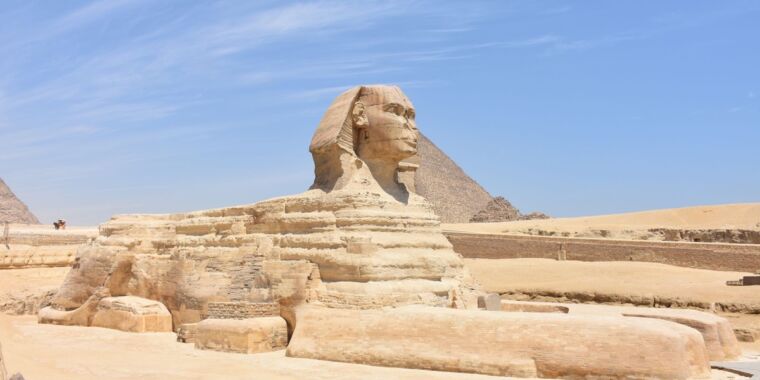Neat!
This is the best summary I could come up with:
Leif Ristroph, a physicist and applied mathematician at New York University, was conducting experiments on how clay erodes in response to flowing water when he noticed tiny shapes emerging that resembled seated lions—in essence, miniature versions of the Great Sphinx of Giza in Egypt.
“These findings hardly resolve the mysteries behind yardangs and the Great Sphinx, but perhaps they provoke us to wonder what awe-inspiring landforms ancient people could have encountered in the deserts of Egypt and why they might have envisioned a fantastic creature.”
Last year, Ristroph’s group conducted a series of experiments involving paper airplanes to explore the underlying aerodynamics, developing a handy mathematical model to predict flight stability.
The team verified this by test-flying various rectangular sheets of paper, changing the front weight by adding thin metallic tape to one edge.
Ristroph et al. concluded that these pointed rock formations result from solids dissolving into liquids in the presence of gravity, which produces natural convective flows.
The heavier water then sinks under the downward pull of gravity, and the flows gradually form karst topographies.
The original article contains 542 words, the summary contains 177 words. Saved 67%. I’m a bot and I’m open source!



